
Doha: The Jewel of the Middle East
Doha, the capital city of Qatar, is a dazzling blend of tradition and modernity. With its striking skyline, rich cultural heritage, and warm hospitality, Doha offers a unique experience for every traveler. From the historic Souq Waqif to the futuristic towers of West Bay, the city is a testament to Qatar's rapid development and deep-rooted traditions. Explore the Museum of Islamic Art, a masterpiece designed by I.M. Pei, which houses a world-class collection of Islamic artifacts. Wander along the Corniche, a picturesque waterfront promenade that offers stunning views of the city’s skyline and the tranquil waters of the Arabian Gulf. For a taste of local life, visit the bustling Souq Waqif, where you can haggle for spices, textiles, and traditional Qatari handicrafts. Doha is also a hub for sports enthusiasts, with world-class facilities and events, including the iconic Khalifa International Stadium. For those seeking adventure, a desert safari offers a thrilling experience of dune bashing and camel riding. Don't forget to indulge in the local cuisine, with its rich flavors and aromatic spices, offering a delightful culinary journey.
Local tips in Doha
- Dress modestly, especially when visiting religious sites, to respect local customs.
- Visit during the cooler months from November to March for the most pleasant weather.
- Taxis and ride-sharing services are readily available but consider using the efficient metro system for a quicker, cheaper way to get around.
- Make sure to try traditional Qatari dishes like Machboos and Harees for an authentic culinary experience.
- Check out the local events calendar for festivals and cultural events to enhance your visit.
Neighbourhoods in Doha
Doha: The Jewel of the Middle East
Doha, the capital city of Qatar, is a dazzling blend of tradition and modernity. With its striking skyline, rich cultural heritage, and warm hospitality, Doha offers a unique experience for every traveler. From the historic Souq Waqif to the futuristic towers of West Bay, the city is a testament to Qatar's rapid development and deep-rooted traditions. Explore the Museum of Islamic Art, a masterpiece designed by I.M. Pei, which houses a world-class collection of Islamic artifacts. Wander along the Corniche, a picturesque waterfront promenade that offers stunning views of the city’s skyline and the tranquil waters of the Arabian Gulf. For a taste of local life, visit the bustling Souq Waqif, where you can haggle for spices, textiles, and traditional Qatari handicrafts. Doha is also a hub for sports enthusiasts, with world-class facilities and events, including the iconic Khalifa International Stadium. For those seeking adventure, a desert safari offers a thrilling experience of dune bashing and camel riding. Don't forget to indulge in the local cuisine, with its rich flavors and aromatic spices, offering a delightful culinary journey.
When is the best time to go to Doha?
Iconic landmarks you can’t miss
Katara Cultural Village
Explore the cultural gems of Doha at Katara Cultural Village, where art, history, and culinary delights come together in a vibrant waterfront setting.
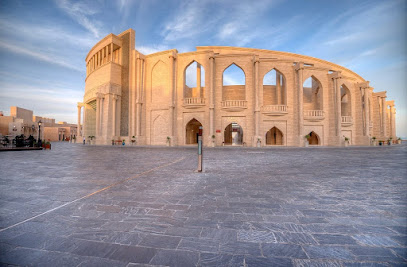
Aspire Park
Experience the tranquility of Aspire Park, Doha's urban oasis, with lush landscapes, walking trails, and recreational fun in the heart of the city.
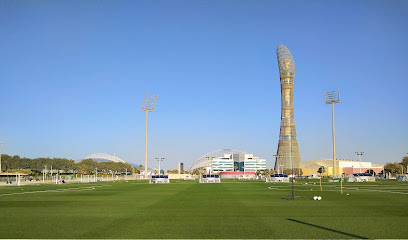
Souq Waqif
Explore the vibrant Souq Waqif, Doha’s traditional market, where culture, cuisine, and craftsmanship come together in a lively atmosphere.
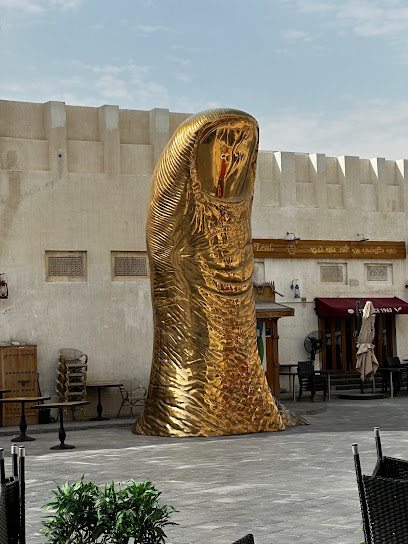
National Museum of Qatar
Experience the rich heritage of Qatar at the National Museum, where history comes alive through stunning architecture and immersive exhibits.
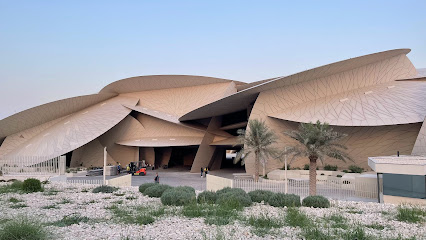
Landmark Mall
Explore the vibrant Landmark Mall in Doha, where shopping, dining, and entertainment come together in a modern oasis for all visitors.
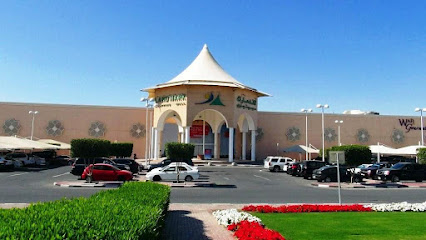
Al Dafna Park
Discover the lush landscapes and stunning views of Al Dafna Park, a tranquil oasis in the heart of Doha's bustling Diplomatic Area.
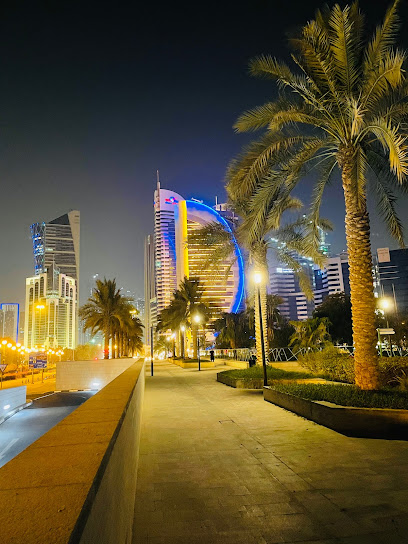
The Pearl Monument
Discover the Pearl Monument in Doha, a stunning tribute to Qatar's pearling heritage located along the beautiful Corniche, perfect for tourists seeking culture and beauty.
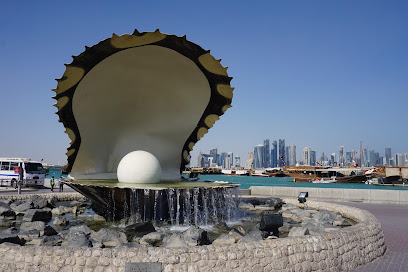
Abdullah Bin Zaid Al Mahmoud Islamic Cultural Center (Fanar Masjid)
Explore Qatar's Islamic heritage at the Abdullah Bin Zaid Al Mahmoud Islamic Cultural Center, a cultural hub in Doha offering rich insights and stunning architecture.
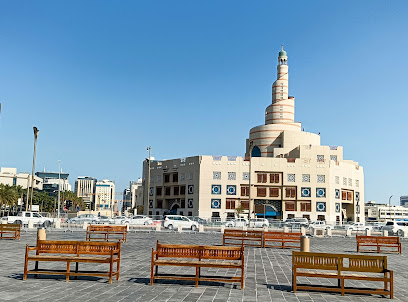
Katara Mosque
Explore the exquisite Katara Mosque in Doha, a stunning architectural gem that embodies Islamic culture and heritage.
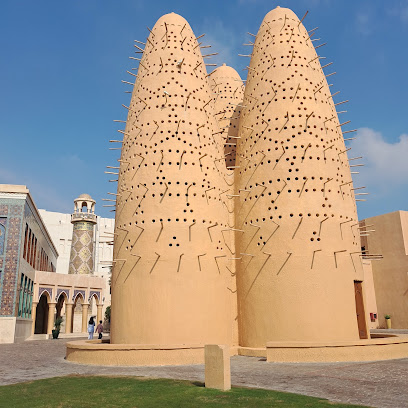
Qanat Quatier Canal, The Pearls
Explore the picturesque Qanat Quatier Canal in The Pearl-Qatar, where Mediterranean charm meets luxurious living in Doha.
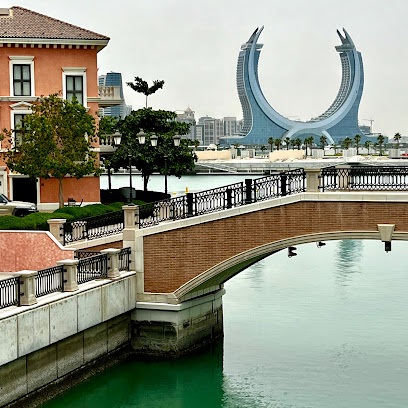
Qatar Racing Club
Discover the excitement of motorsport at Qatar Racing Club, Doha's premier car racing venue for adrenaline-fueled events and unforgettable experiences.
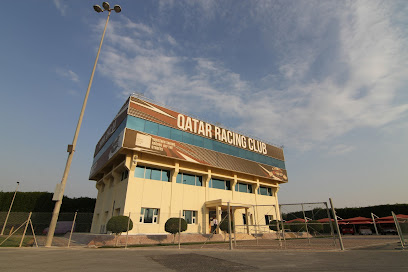
Doha Tower
Experience the architectural brilliance of Doha Tower, a modern marvel standing tall in Qatar's vibrant capital.
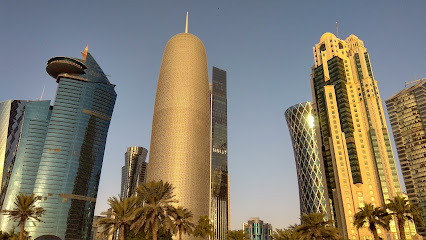
Katara Hills
Explore the stunning landscapes and serene beauty of Katara Hills in Doha, a perfect escape for nature lovers and families alike.
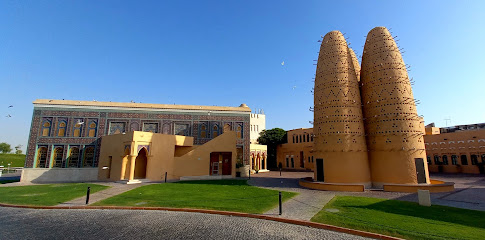
Mina District
Experience the vibrant culture and scenic beauty of Mina District in Doha, where tradition meets modernity amidst stunning waterfront views.
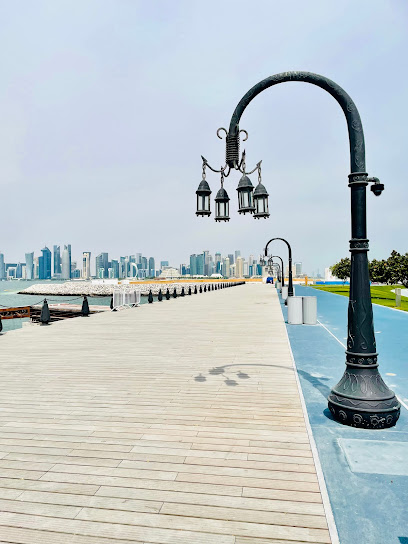
Al Thuraya Planetarium
Explore the wonders of the universe at Al Thuraya Planetarium in Doha, where interactive exhibits and stunning visuals bring astronomy to life.

Unmissable attractions to see
Katara Cultural Village
Discover the cultural richness of Doha at Katara Cultural Village, a vibrant hub of art, heritage, and local traditions.
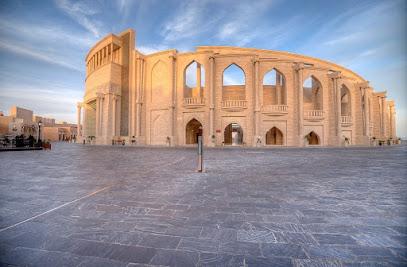
Aspire Park
Discover the natural beauty and recreational delights of Aspire Park, Doha's premier green space for relaxation and outdoor adventures.
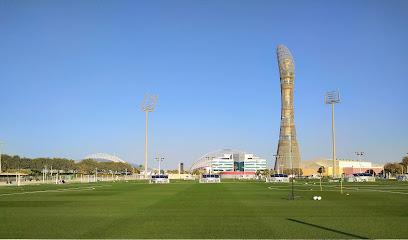
National Museum of Qatar
Discover the rich cultural heritage and stunning architecture of the National Museum of Qatar, a must-see for every traveler in Doha.
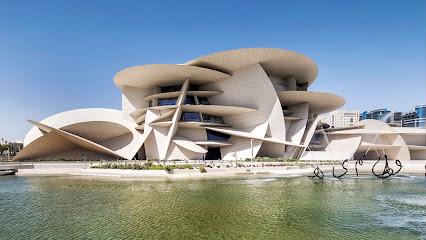
Museum of Islamic Art
Explore the Museum of Islamic Art in Doha, a magnificent space showcasing over 1,400 years of Islamic cultural heritage and stunning architectural design.
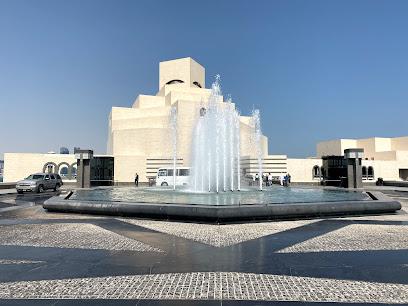
Al Bidda Park
Discover Al Bidda Park, Doha's urban oasis with lush greenery, stunning skyline views, and family-friendly recreational activities.
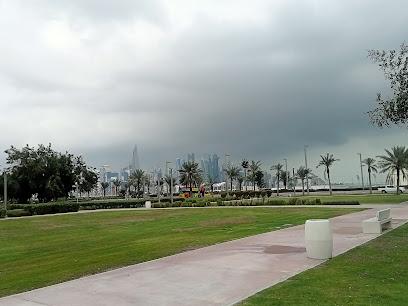
Sealine Beach, A Murwab Resort
Discover luxury and adventure at Sealine Beach Resort, Mesaieed, where stunning beaches meet unforgettable experiences.
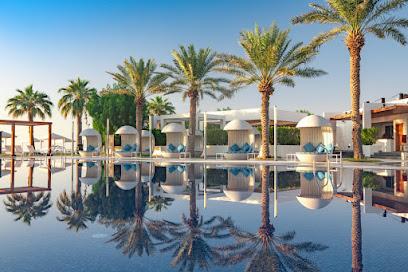
Khalifa International Stadium
Explore Khalifa International Stadium in Doha, a historic sports venue showcasing Qatar's rich athletic culture and modern sporting excellence.
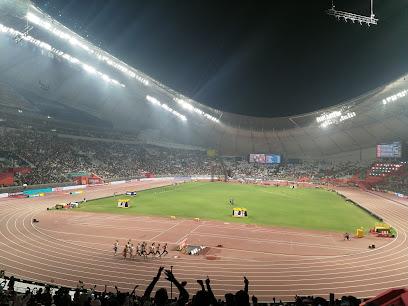
MIA Park
Discover the beauty of MIA Park in Doha, a lush green sanctuary featuring gardens, stunning art installations, and breathtaking views of the Arabian Gulf.
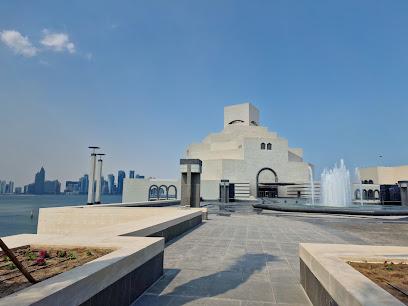
Al Janoub Stadium
Explore Al Janoub Stadium, where modern design meets Qatar's rich cultural heritage in a premier sports destination.
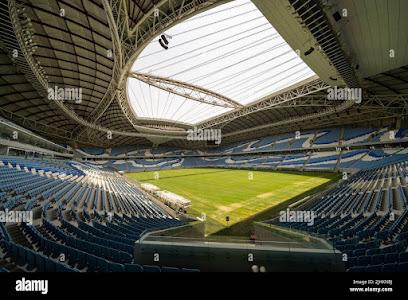
Al Bayt Stadium
Experience the architectural brilliance and cultural significance of Al Bayt Stadium in Al Khor, Qatar, a must-see destination for sports enthusiasts.
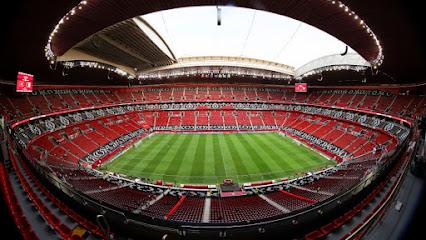
Lusail Stadium
Explore Lusail Stadium, a stunning architectural marvel in Qatar, hosting world-class sporting events and offering unforgettable experiences for all.
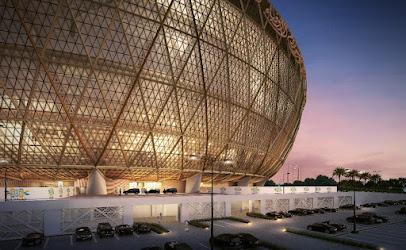
Oxygen Park
Discover the lush landscapes and vibrant community events at Oxygen Park, a serene escape in Education City, Qatar, perfect for relaxation and outdoor activities.
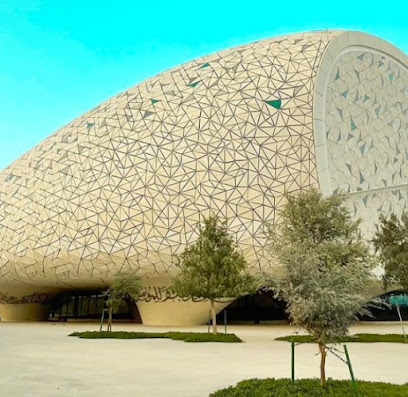
The Pearl Island
Discover the opulence of The Pearl Island in Doha, a luxurious man-made oasis featuring shopping, dining, and stunning coastal views.
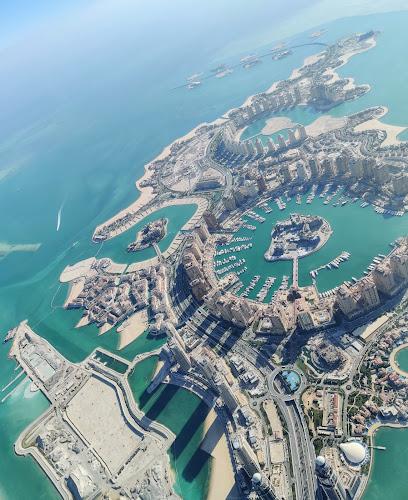
Old Doha Port
Experience the beauty and heritage of Old Doha Port, where the charm of Qatar's maritime past meets modern leisure and culture.
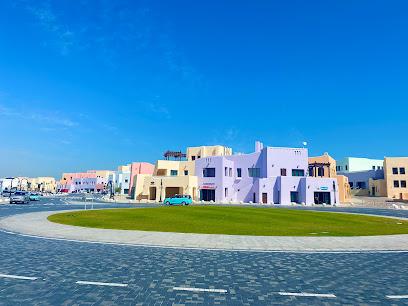
Education City Stadium
Discover the excitement of Education City Stadium in Gurshaiganj, a premier destination for sports fans and tourists seeking unforgettable experiences.
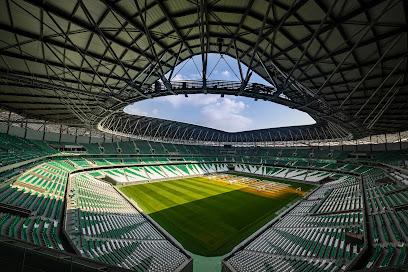
Essential places to dine
Bayt El Talleh Restaurant
Experience authentic Qatari cuisine at Bayt El Talleh Restaurant in Katara Cultural Village – where tradition meets taste amidst stunning views.
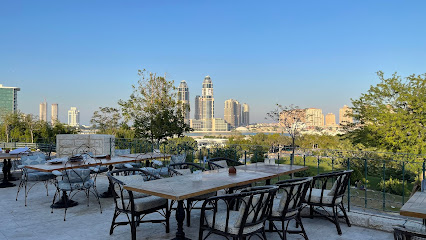
Yasmine Palace Restaurant
Discover authentic Lebanese and Syrian cuisine at Yasmine Palace Restaurant in The Pearl-Qatar - where every meal is a celebration.
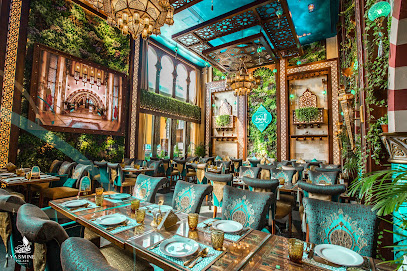
L'wzaar Sea Food Restaurant
Discover exquisite seafood at L'wzaar Sea Food Restaurant in Doha, where ocean-fresh flavors meet stunning seaside views.
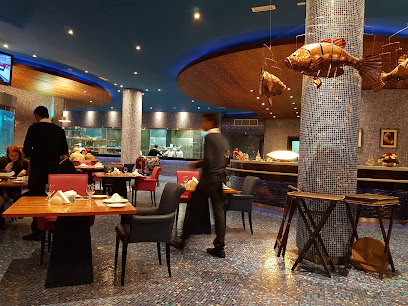
Orient Pearl
Discover authentic Middle Eastern cuisine at Orient Pearl in Doha - where flavors come alive amidst stunning views along Corniche Road.
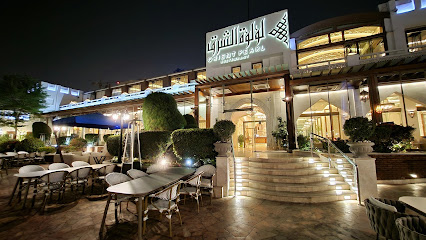
Bandar Aden Restaurant
Experience authentic Yemenite cuisine at Bandar Aden Restaurant in Doha - A culinary journey through rich flavors and traditional dishes.
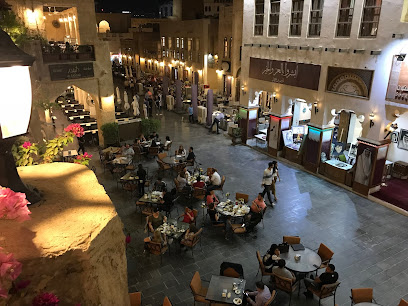
Nobu Doha
Discover the art of Japanese-Peruvian cuisine at Nobu Doha—an exquisite dining experience blending tradition with modern luxury.
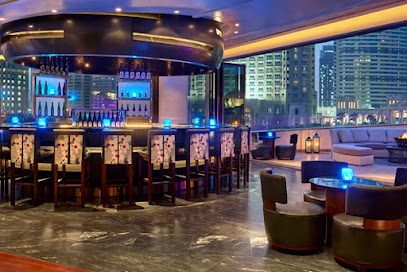
Parisa Souq Waqif
Experience the essence of Persian cuisine at Parisa Souq Waqif – where every meal is a cultural journey through flavors.
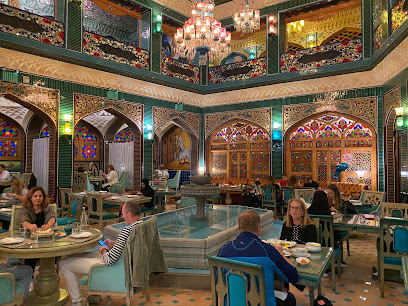
Nusr-Et Steakhouse Doha
Experience world-class steaks and exceptional service at Nusr-Et Steakhouse Doha, where luxury meets culinary artistry.
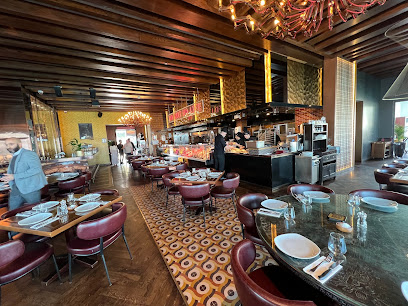
Paper Moon Doha
Indulge in exquisite Italian cuisine at Paper Moon Doha – where tradition meets taste in a stylish setting.
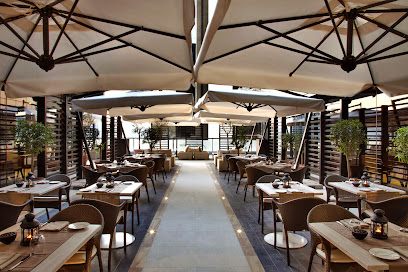
Toro Toro Doha
Discover the exquisite blend of flavors at Toro Toro Doha - an upscale Latin American dining destination nestled in the luxurious Marsa Malaz Kempinski.
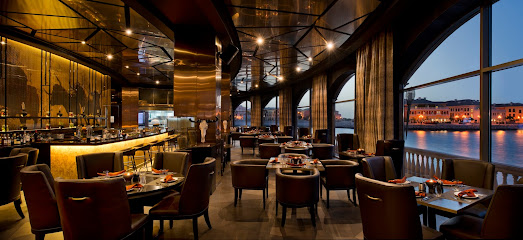
REBERU Contemporary Cuisine
Discover a unique fusion of Japanese and European cuisine at REBERU Contemporary Cuisine in Doha's vibrant Msheireb Downtown.
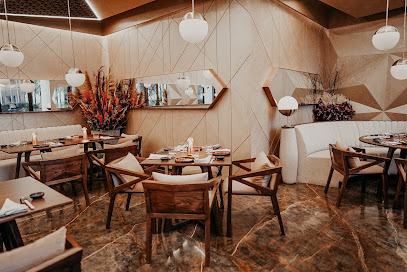
Spice Market
Discover Spice Market: A Luxurious Dining Experience Featuring Authentic Asian Cuisine in Doha's W Hotel.
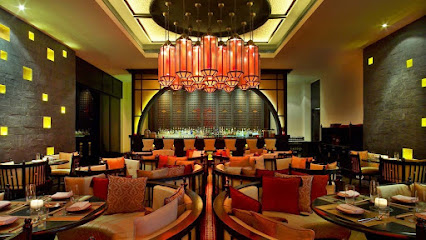
Ipanema
Experience authentic Brazilian cuisine at Ipanema in Doha's luxurious Marriott Marquis City Center Hotel.
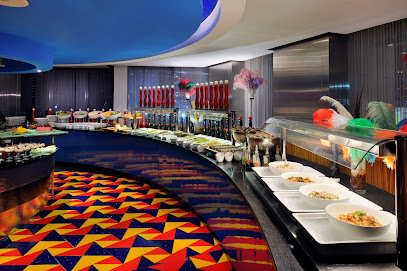
Hakkasan Doha
Experience unparalleled luxury dining at Hakkasan Doha - where traditional Chinese cuisine meets contemporary elegance.
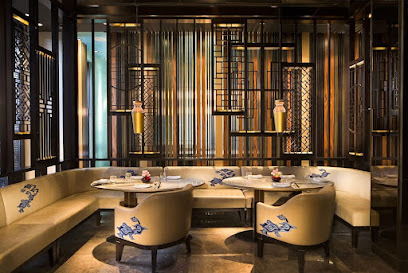
La Mar Doha by Gastón Acurio
Experience the vibrant flavors of Peru at La Mar Doha by Gastón Acurio - where culinary artistry meets stunning views.
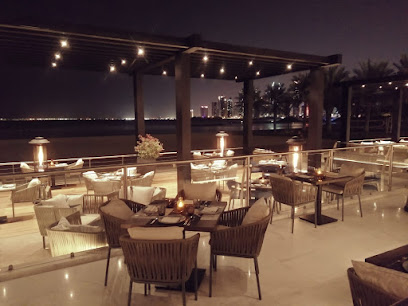
Markets, malls and hidden boutiques
Villaggio Mall
Explore the opulence of Villaggio Mall in Doha, a shopping paradise with stunning architecture, exquisite dining, and endless entertainment options.
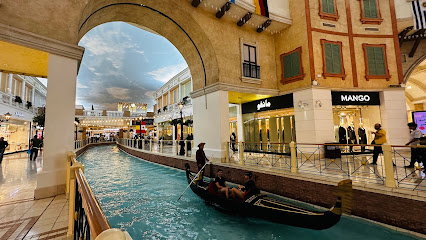
City Center Doha mall
Discover the ultimate shopping experience at City Center Doha, featuring over 370 stores, diverse dining options, and entertainment for the whole family.
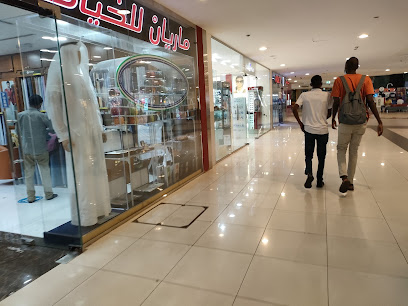
Dar Al Salam Mall
Experience unparalleled shopping and dining at Dar Al Salam Mall in Doha, where modernity meets tradition in a vibrant atmosphere.
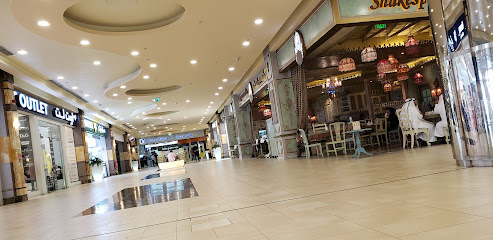
Galeries Lafayette
Discover Doha's Galeries Lafayette, where luxury shopping meets gourmet dining in an exquisite setting, perfect for an unforgettable experience.
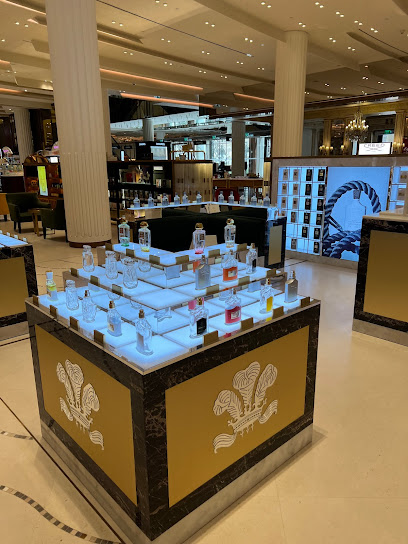
Brands For Less
Shop smart at Brands For Less in Doha, where quality products meet unbeatable prices, making it a shopper's paradise.
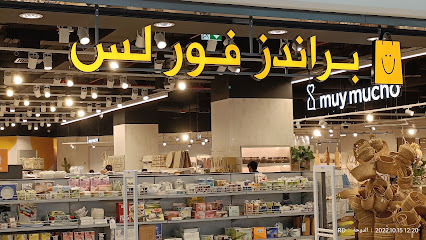
Printemps Doha
Discover the luxury of shopping at Printemps Doha, featuring high-end fashion, gourmet cuisine, and a unique retail experience.
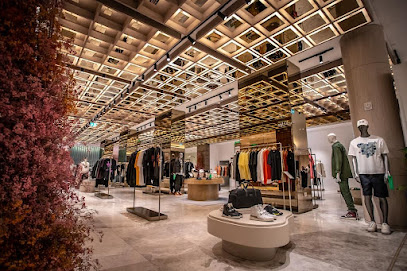
THE DEAL- (The Centre)
Explore The Deal - The Centre in Doha for an unforgettable shopping experience featuring a wide range of gifts, clothing, and beauty supplies.
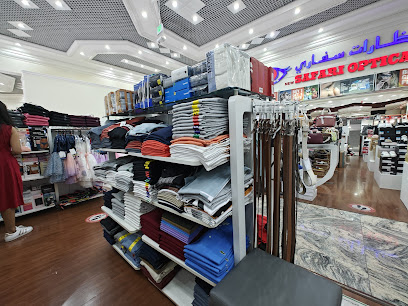
GIFT SHED
Discover unique souvenirs and local handicrafts at Gift Shed, a charming gift shop in Doha Festival City, perfect for every tourist's memento.
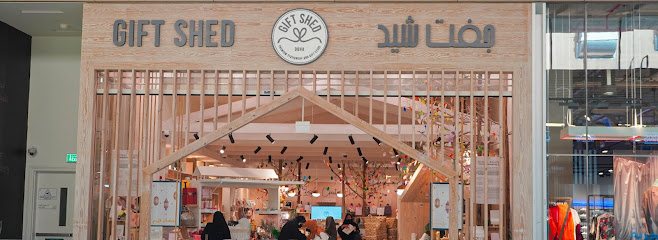
Lamudi Gift Shop
Explore Lamudi Gift Shop for unique souvenirs, local handicrafts, and trendy accessories in the heart of Doha.
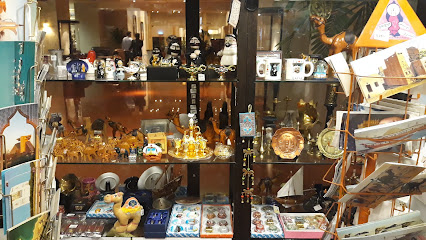
GIFT CITY QATAR
Discover an unparalleled shopping experience at Gift City Qatar, where unique gifts and quality stationery await.
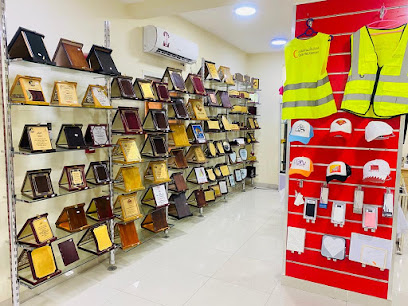
Gifts By Fatma
Explore Doha's Gifts By Fatma for unique gifts, corporate items, and authentic souvenirs that capture the spirit of Qatar.
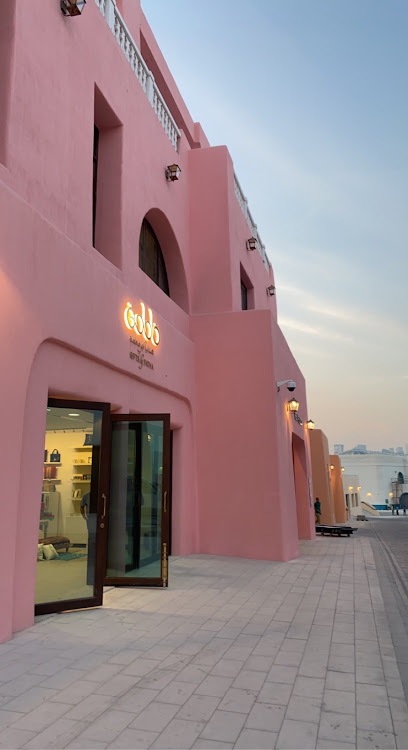
Moonlight Concept
Explore the ultimate fashion destination in Doha at Moonlight Concept, where style meets elegance in women's clothing and accessories.
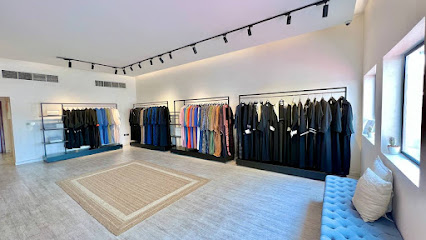
QDF Boutique (Operated By Qatar Duty-free )
Discover exquisite perfumes and luxury gifts at QDF Boutique, the ultimate shopping destination in Doha, operated by Qatar Duty-Free.
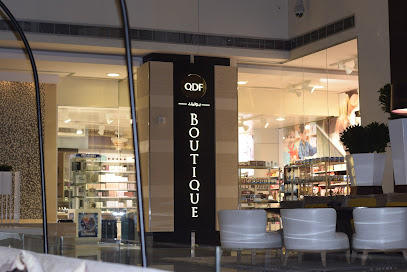
ME QATAR MATAR QADEEM
Explore ME Qatar Matar Qadeem for an unforgettable shopping experience, featuring a trendy mix of contemporary and traditional Qatari fashion.
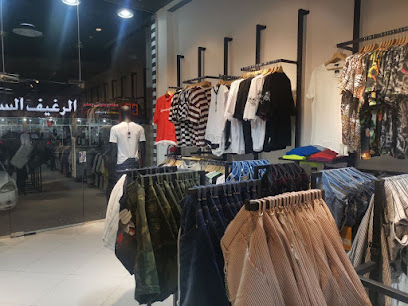
Fantastic Novelty
Discover the charm of women's fashion at Fantastic Novelty in Doha's vibrant Al Souq, where modern style meets traditional elegance.
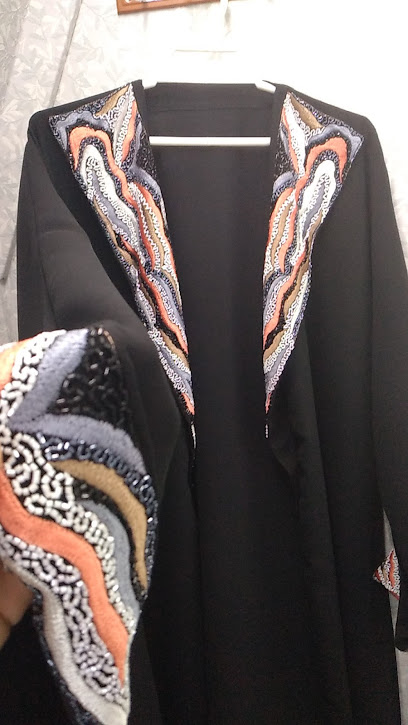
Essential bars & hidden hideouts
KROSSROADS CLUB
Discover KROSSROADS CLUB, the ultimate nightlife destination in Doha, offering stunning views, exquisite drinks, and a lively atmosphere for unforgettable evenings.
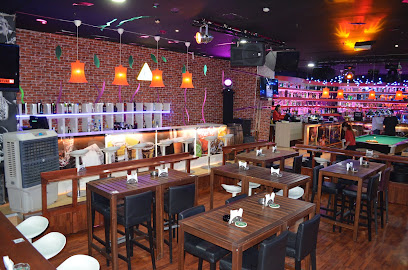
Champions Sports Bar
Discover Champions Sports Bar in Doha – where sports, great food, and a lively atmosphere come together for an unforgettable experience.
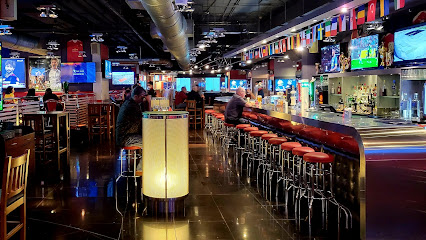
The Irish Harp
Experience the vibrant spirit of Ireland at The Irish Harp, Doha's top bar and restaurant, offering authentic cuisine and a lively atmosphere.
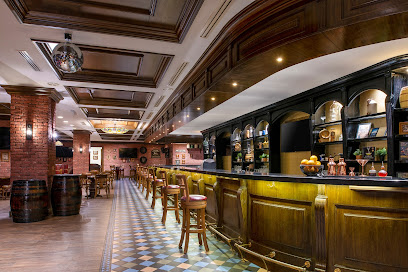
The Irish Pub Doha
Discover the warmth of Irish hospitality at The Irish Pub Doha, featuring authentic brews and hearty cuisine in a cozy atmosphere.
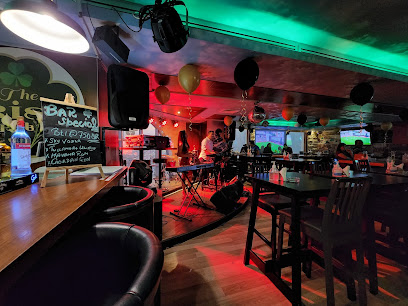
The Red Lion Doha
Discover the lively atmosphere of The Red Lion Doha, a cozy pub offering delicious food, refreshing drinks, and a perfect spot to unwind in Qatar's capital.
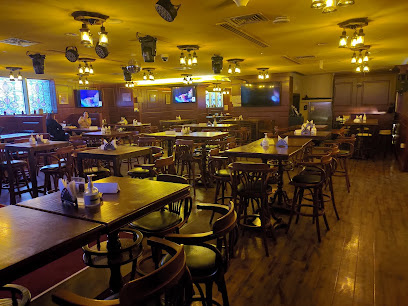
Shehrazad Lounge and Bar
Experience the excitement of sports with culinary delights at Shehrazad Lounge and Bar, a vibrant oasis in Doha's nightlife.
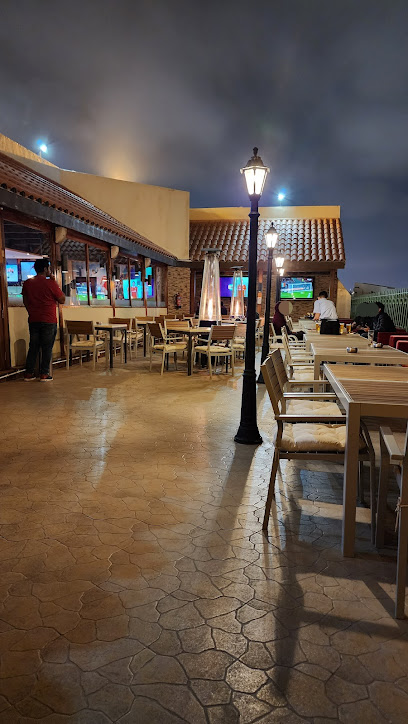
Mix Lounge & Terrace
Experience Doha's vibrant nightlife at Mix Lounge & Terrace, where exquisite dining meets stunning views for an unforgettable evening.
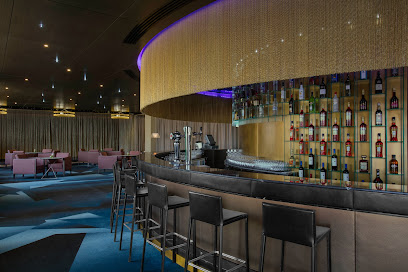
Wahm Lounge Doha
Experience the vibrant nightlife at Wahm Lounge Doha, a chic bar within W Doha Hotel, offering exquisite cocktails and a lively atmosphere.
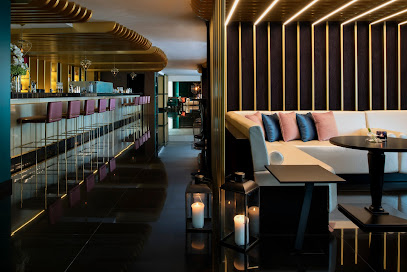
The Secret Garden
Discover the enchanting ambiance of The Secret Garden, a luxurious lounge in Doha, perfect for dining and nightlife amidst lush greenery.
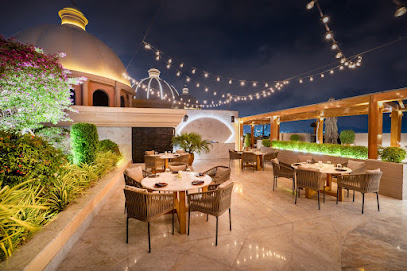
The Den
Discover The Den at JW Marriott Doha, where luxury meets vibrant nightlife with exquisite drinks and an inviting atmosphere.
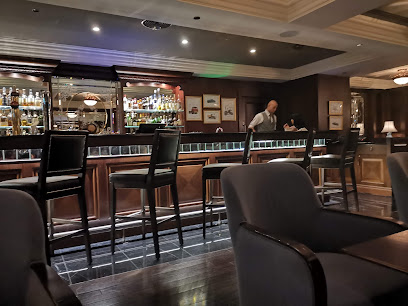
The Tunnel Lounge & Club Doha
Experience Doha's nightlife at The Tunnel Lounge & Club, where exquisite drinks and vibrant ambiance come together for an unforgettable evening.
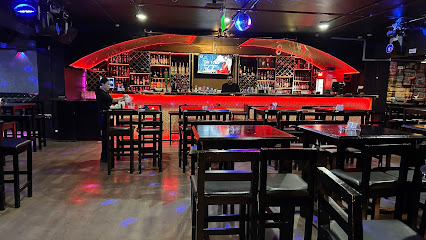
Brewskis and Grub
Experience the vibrant flavors of Brewskis and Grub, a premier grill restaurant in Doha's Crowne Plaza Hotel, perfect for food lovers and tourists alike.
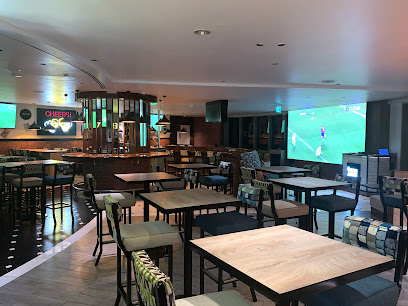
Noir Lounge & Club
Discover the ultimate nightlife experience at Noir Lounge & Club in Doha, where stylish ambiance meets electrifying entertainment.
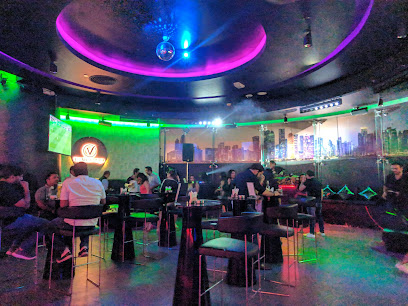
Glo Cocktail Bar
Experience Doha's nightlife at Glo Cocktail Bar, where exquisite cocktails and vibrant atmosphere await.
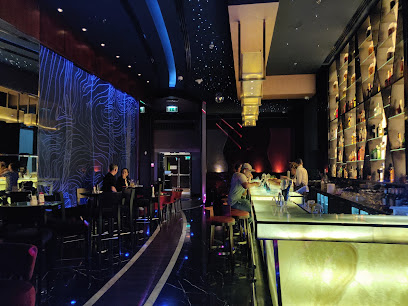
Local Phrases
-
- Helloمرحبا
[marhaba] - Goodbyeوداعا
[wadaa'an] - Yesنعم
[naam] - Noلا
[laa] - Please/You're welcomeمن فضلك
[min fadlik] - Thank youشكراً
[shukran] - Excuse me/Sorryعذراً
[aathirann] - How are you?كيف حالك؟
[kayf halik?] - Fine. And you?بخير. وأنت؟
[bikhayr. wa'ant?] - Do you speak English?هل تتكلم الإنجليزية؟
[hal tatakallam al'inglizia?] - I don't understandأنا لا أفهم
[ana la afham]
- Helloمرحبا
-
- I'd like to see the menu, pleaseأريد أن أرى القائمة، من فضلك
[urid an ara alqaimah, min fadlik] - I don't eat meatأنا لا آكل اللحم
[ana la aakul allahm] - Cheers!في صحتك!
[fi sahtak!] - I would like to pay, pleaseأريد أن أدفع، من فضلك
[urid an adfa', min fadlik]
- I'd like to see the menu, pleaseأريد أن أرى القائمة، من فضلك
-
- Help!النجدة!
[alnajdah!] - Go away!اتركني وحدي!
[itrkni wahdi!] - Call the Police!اتصل بالشرطة!
[atsil bialshurta!] - Call a doctor!اتصل بطبيب!
[atsil bittabib!] - I'm lostأنا ضائع
[ana dae'] - I'm illأنا مريض
[ana mariid]
- Help!النجدة!
-
- I'd like to buy...أود أن أشتري...
[awad an ashtari...] - I'm just lookingأنا فقط أتطلع
[ana faqat attala] - How much is it?كم سعره؟
[kam si'rh?] - That's too expensiveهذا غالي جداً
[hadha ghali jiddan] - Can you lower the price?هل يمكنك خفض السعر؟
[hal yumkinak khafd alsi'rh?]
- I'd like to buy...أود أن أشتري...
-
- What time is it?كم الساعة؟
[kam alssa'ah?] - It's one o'clockالساعة الواحدة
[alssa'ah alwahidah] - Half past (10)النصف بعد (10)
[alnusf ba'd (10)] - Morningصباح
[sabah] - Afternoonمساء
[masa'] - Eveningمساء
[masa'] - Yesterdayأمس
[ams] - Todayاليوم
[alyawm] - Tomorrowغداً
[ghadan] - 1واحد
[wahid] - 2اثنان
[ithnan] - 3ثلاثة
[thalatha] - 4أربعة
[arba'a] - 5خمسة
[khamsa] - 6ستة
[sitta] - 7سبعة
[sab'a] - 8ثمانية
[thamania] - 9تسعة
[tisia] - 10عشرة
[asharah]
- What time is it?كم الساعة؟
-
- Where's a/the...?أين توجد...؟
[ayn tawajud...?] - What's the address?ما هو العنوان؟
[ma huwa al'anaan?] - Can you show me (on the map)?هل يمكنك أن تريني (على الخريطة)؟
[hal yumkinuk an tarini (ala alkharitah)?] - When's the next (bus)?متى يأتي الحافلة التالية؟
[mata yaati alhafilat altalyah?] - A ticket (to ....)تذكرة (إلى ....)
[tazkirat (ila ....)]
- Where's a/the...?أين توجد...؟
History of Doha
-
Doha's history traces back to the 1820s, although archaeological evidence suggests human habitation in the area for thousands of years. The name 'Doha' is derived from the Arabic term 'Ad-Dawḥa,' meaning 'the big tree,' a reference to a prominent tree that once stood near the fishing village that the city grew from.
-
In the mid-19th century, Doha became the seat of power for the Al Thani family, who have ruled Qatar since. Sheikh Mohammed bin Thani signed a treaty with the British in 1868, laying the foundation for the modern state of Qatar and establishing Doha as its capital.
-
Before the discovery of oil, Doha's economy was primarily based on pearl diving and fishing. The waters of the Persian Gulf provided some of the finest pearls, and the industry was a significant source of wealth for the local population until the early 20th century.
-
The discovery of oil in 1939 marked a turning point in Doha's history. After World War II, the city's economy rapidly transformed, attracting foreign investment and leading to infrastructural development. By the 1950s and 1960s, Doha began to modernize, with new roads, schools, and hospitals being built.
-
Qatar gained independence from British rule on September 3, 1971. Doha, as the capital, witnessed rapid modernization efforts under the leadership of Emir Sheikh Khalifa bin Hamad Al Thani. The city expanded its infrastructure, including new government buildings, roads, and public services.
-
In recent decades, Doha has positioned itself as a center for education and culture in the Middle East. The establishment of Education City, home to branch campuses of international universities, and the opening of the Museum of Islamic Art in 2008, have made Doha a hub for learning and cultural exchange.
-
Doha has hosted numerous international events, including the 2006 Asian Games and the 2022 FIFA World Cup. These events have further spurred infrastructure development, including the construction of stadiums, hotels, and transportation networks, elevating Doha's status on the global stage.
-
The skyline of Doha is now dotted with architectural marvels such as the Aspire Tower, the Tornado Tower, and the Katara Cultural Village. These structures symbolize Doha's rapid urban development and its aspiration to blend traditional Qatari elements with contemporary design.
Doha Essentials
-
Doha is served by Hamad International Airport (HIA), one of the most modern and efficient airports in the world. Located about 15 kilometers from the city center, it offers flights to and from major cities across the globe. Taxis, ride-sharing services, and airport shuttles are readily available to transport you to your accommodation.
-
Doha offers a variety of transportation options including a modern metro system, buses, and taxis. The Doha Metro is a convenient and affordable way to navigate the city, with lines connecting major landmarks and neighborhoods. Karwa taxis and ride-sharing services like Uber and Careem are also widely available. For more flexibility, consider renting a car, but be aware that traffic can be heavy during peak hours.
-
The official currency in Qatar is the Qatari Riyal (QAR). Credit and debit cards are widely accepted in hotels, restaurants, and shops. ATMs are plentiful throughout the city. However, it's a good idea to carry some cash for small purchases or in areas where card payments may not be accepted.
-
Doha is generally a very safe city for tourists, with low crime rates. However, it is always advisable to take standard precautions such as avoiding poorly lit areas at night and being mindful of your belongings in crowded places. There are no specific neighborhoods known for high crime rates targeting tourists.
-
In case of an emergency, dial 999 for police, fire, or medical assistance. Hamad General Hospital provides comprehensive medical services and has an emergency department. It's recommended to have travel insurance that covers medical emergencies. Pharmacies are widely available for minor health issues and over-the-counter medications.
-
Fashion: Do dress modestly, especially in public and religious sites. Avoid revealing clothing. Religion: Do respect local customs and traditions. Always dress conservatively and behave respectfully in mosques and other religious sites. Public Transport: Do be respectful and give up your seat to elderly passengers. Don't eat or drink on the metro or buses. Greetings: Do greet people with a handshake. Men should wait for a woman to extend her hand first. Eating & Drinking: Do try local delicacies and accept food offerings graciously. Don't eat or drink in public during Ramadan daylight hours.
-
To experience Doha like a local, visit the Souq Waqif where you can buy traditional Qatari goods and enjoy local cuisine. Engage with locals, who are often friendly and willing to share insights about the city. Don't miss the opportunity to explore the Corniche, a waterfront promenade offering beautiful views of the Doha skyline. For a unique experience, visit the Museum of Islamic Art and the Katara Cultural Village.
Trending Landmark in Doha
-
Katara Cultural Village
-
Aspire Park
-
Souq Waqif
-
National Museum of Qatar
-
Landmark Mall
-
Al Dafna Park
-
The Pearl Monument
-
Abdullah Bin Zaid Al Mahmoud Islamic Cultural Center (Fanar Masjid)
-
Katara Mosque
-
Qanat Quatier Canal, The Pearls
-
Qatar Racing Club
-
Doha Tower
-
Katara Hills
-
Mina District
-
Al Thuraya Planetarium
Nearby Cities to Doha
-
Things To Do in Al Rayyan
-
Things To Do in Al Wakrah
-
Things To Do in Umm Salal
-
Things To Do in Al Daayen
-
Things To Do in Al Sheehaniya
-
Things To Do in Mesaieed
-
Things To Do in Al Khor
-
Things To Do in Al Shamal
-
Things To Do in Sitra
-
Things To Do in Riffa
-
Things To Do in Hamad Town
-
Things To Do in Isa Town
-
Things To Do in Juffair
-
Things To Do in Manama
-
Things To Do in Amwaj Islands
















